The first topic discussed on Fighters' Hour was the Israel–Hamas agreement, Minister of Foreign Affairs and Trade Peter Szijjarto called "fantastic news".
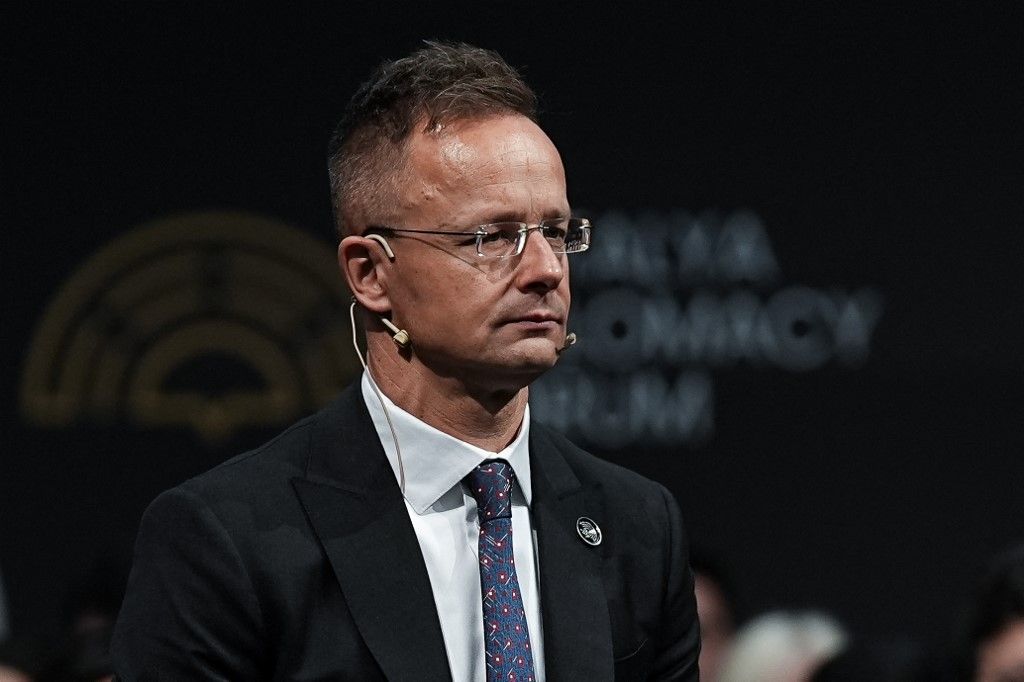
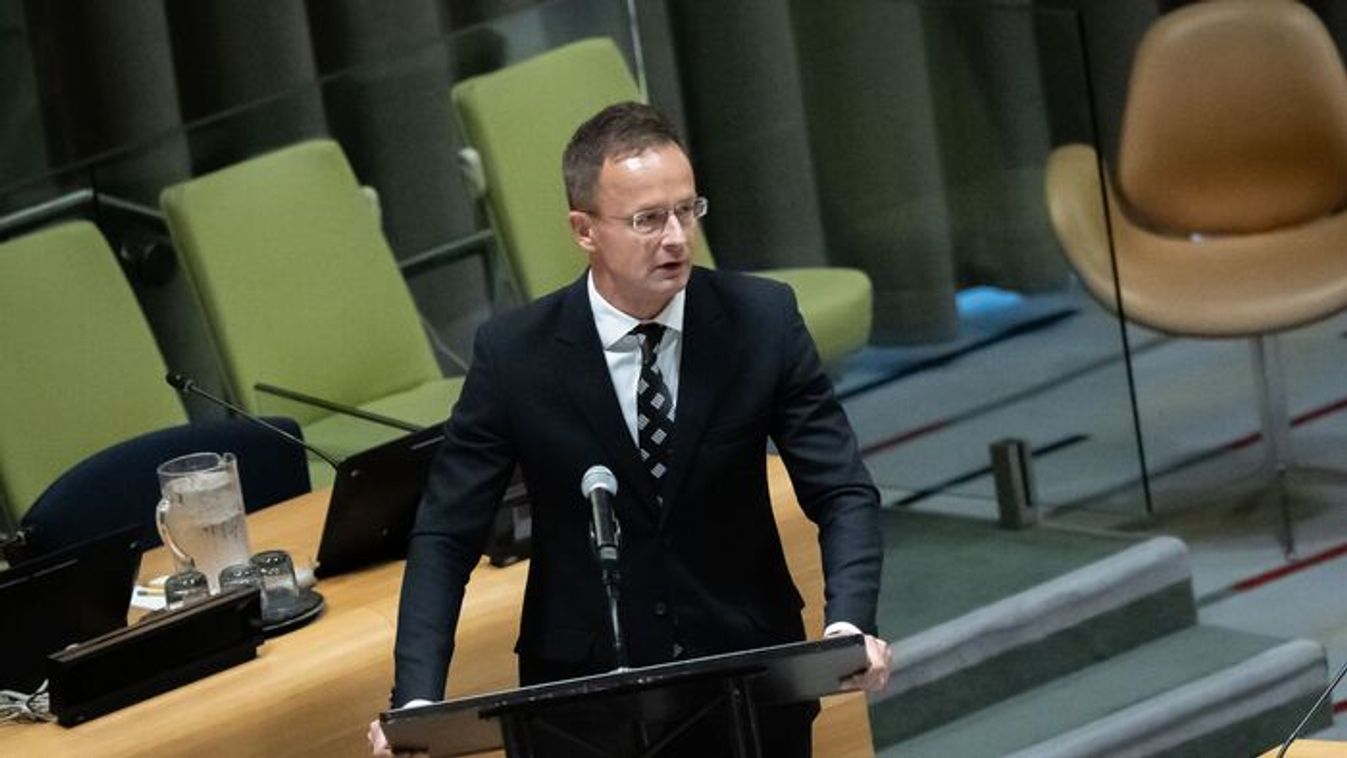
The first topic discussed on Fighters' Hour was the Israel–Hamas agreement, Minister of Foreign Affairs and Trade Peter Szijjarto called "fantastic news".

The minister highlighted:
This is further proof that US President Donald Trump is a true president of peace. Once again, he has played a crucial role in resolving a major security conflict, achieving a real breakthrough. Donald Trump has proven himself to be the single most important guarantor of peace in the Middle East. In fact, the only real hope for peace in the Middle East.
"History and the facts speak for themselves. For decades, countless attempts have been made to build peaceful coexistence among the peoples of the Middle East. All of them failed except one: the Abraham Accords of 2020, when Israel normalized relations with Bahrain and the United Arab Emirates. That agreement was signed under Donald Trump’s 'guardianship' in the White House garden, and I was the only foreign minister in the world who attended in person,” said Peter Szijjarto.
After decades of failure, Donald Trump’s approach turned out to be the only realistic way to give the people of the Middle East their right to live in peace — free from rocket attacks and terrorism. His success deserves another check mark on the list of his peace achievements. Trump played an absolutely indispensable role in resolving yet another serious security crisis. And here in Central Europe, we hope he can be just as successful in addressing the other major conflict that threatens our own security — the war in Ukraine.
Peter Szijjarto said many were working on thwarting Trump's plans in both regions. There was now a hope of success in the Middle East, "and we sincerely hope that Donald Trump will be successful in creating peace in Ukraine, too, despite all attempts to trip up, hinder or undermine him," he said.
The foreign minister then mentioned that one Hungarian citizen is still being held hostage by Hamas.
The signs suggest that he is still alive. We pray to God to protect him and his family, and according to the latest reports, he could be released as early as Monday together with the other hostages. He’s been in captivity for more than two years, and his family has lived all that time in uncertainty, not knowing if they would ever see him again. If everything goes well, that reunion could finally happen on Monday.
The minister expressed his gratitude not only to Donald Trump but also to those who played a mediating role. "Egypt and Qatar were also crucial," he said. "This is a huge accomplishment. Every time we manage to resolve a serious security conflict somewhere in the world, it significantly reduces the likelihood of a third world war."
Host Balazs Nemeth turned the conversation to the no-confidence motion against Ursula von der Leyen. As he noted, "Yesterday was Von der Leyen’s birthday, and the Patriots for Europe EP group, which includes Fidesz–KDNP MEPs, celebrated the occasion by saying that it is time for Von der Leyen to go, because we believe that it would be better for the future of Europe if Von der Leyen were no longer European Commission President."
Peter Szijjarto responded:
First of all, of course, we wish the Commission President a happy birthday and good health. But the truth is, Ursula von der Leyen has done enormous damage to the European Union, to European nations, and to the people of Europe. She has done more damage than almost anyone in the past two decades. Under her leadership, Europe has lost its peace, the continent has lost its global weight, the EU has lost its economic competitiveness, and an extreme liberal madness has taken over, with gender propaganda and all that comes with it.
The minister went on to say that Von der Leyen has played an astonishingly big role in ruining the EU. "Remember, Europe used to be the continent of peace. Then a war broke out three and a half years ago. Instead of isolating that conflict, the European Commission, with Ursula von der Leyen taking a leading role, helped globalize it. Today, leaders outside Europe simply cannot understand how Europe has become incapable of managing a conflict within the continent.
Ursula von der Leyen managed to 'achieve' that the EU now holds a smaller share of global economic output than the US or China. Von der Leyen’s policies have weakened Europe’s global position and isolated it from the world’s main political and economic players. She signed a trade deal with Washington that’s fantastic — for the Americans. Even our favorite liberal media outlets here were embarrassed to celebrate it and portray it as a success. European exporters now pay 15 percent tariffs instead of 2.5, while US tariffs dropped from ten to zero,
he said.
Peter Szijjarto continued by pointing out that "we’ve isolated ourselves from China too. Instead of focusing on economic cooperation, we call them a systemic rival. It’s like an elephant and a mouse walking across a bridge, with the mouse saying, ‘Hey Dumbo, hear us stomp!’ That’s how ridiculous it is.
The tariffs on Chinese electric vehicles hurt Europe more than China, and sanctions against Russia have effectively destroyed the foundation of Europe’s economic model, the mix of eastern energy and western technology that would rive Europe's economic growth. And we’ve cut ourselves off from Africa, the continent of the future, by making insane gender and ideological conditions the entry ticket for any trade deal. Those are demands African nations simply cannot and will not accept,
he said.
"It really is time for Von der Leyen to go. That would give Europe a glimmer of hope, a chance for the EU to start improving. But let’s be honest: in the European Parliament, the Hungarian opposition parties, the Tisza Party and the Democratic Coalition, the European People’s Party they belong to, and the Socialists all care about one thing and that is power. It’s bizarre that year after year, or decade after decade, we see coalitions of the European People’s Party, the Socialists, the Liberals, and the Greens coming together. These majorities only exist because power is all that matters to them, not the principles or goals they were elected to represent. Because really, what business does a center-right party have in coalition with liberals, socialists, and greens?"
Host Balazs Nemeth turned to the Czech elections and the major victory of Andrej Babis.
Ever since I became foreign minister, I’ve been hearing that Hungarian foreign policy is isolated. Just take a look around. If today you try to find a European leader who can speak, on equal footing, with the leaders of the world’s biggest and strongest countries in every direction, then there’s exactly one. His name is Viktor Orban. So talking about isolation is, frankly, a bit much. PM Orban is the founder of the third largest political group in the European Parliament. Our sister parties across Europe are in government, they’ve won elections, or they’re leading in the polls. This isolation narrative is pure nonsense and it has been for more than a decade. It is not Hungary that is isolated, but the European Union,
Peter Szijjarto stated.
Turning to the political climate in other European countries, Szijjarto said:
In one country after another, we’ve seen the same pattern: a patriotic party wins decisively, yet they’re pushed out of power. Take the Netherlands: a patriotic party won, then was forced into a coalition where party politicians couldn’t even become ministers, and the prime minister couldn’t come from their ranks. Everyone had to dissolve their political identity, and what the result was is new elections and so on. In France, the leader of the patriotic party is stripped by a court of the right to even run in the European elections — in the name of democracy. A French government resigns hours after being installed, or doesn't resign, no one knows what’s going on, while the president appoints what — his fifth government in twenty months? It’s absurd.
"In Slovakia, they tried to assassinate the patriotic prime minister.
In Poland, we saw what they did to prevent a patriotic president taking office.
But the dam burst here in the Czech Republic because despite every international effort, a patriotic party won the election with a majority. There’s nothing President Petr Pavel can do now but give Andrej Babis the mandate to form a government. And we saw even before the vote how they tried to interfere — summoning Babis for a lecture, setting expectations for his future government, and preaching about how to preserve the country’s credibility.
People decided they want something different. They want a different kind of politics, a different approach. And then the president starts lecturing about what the country’s credibility requires? I'll tell you what gives a country credibility: a government that does what its people want,
the minister emphasized.
Balazs Nemeth remarked that Weber is sending messages from Brussels and the liberal press are releasing articles claiming that "they opened the champagne too soon at the Carmelite Monastery," since Babis’s coalition wasn’t yet finalized. In response Peter Szijjarto said:
I know Andrej Babis well. I couldn’t even count how many times we’ve met over the years. And I know people in the other two parties, too. So let me just say to those still hoping otherwise: don’t waste your time writing those little articles. They’ll only look more and more ridiculous. A massive dam has broken. Europe is in a new political era. For the first time since Hungary’s example, a patriotic party not only won but it’s going to govern. The fact is that soon there will be three Central European patriotic prime ministers sitting at the European Council table and that changes everything in all existing debates,
Peter Szijjarto emphasized, adding that "I’m really looking forward to the formation of the new Czech government. Let’s finally have a patriotic foreign minister there too, so I can sit side by side with my Slovak colleague Juraj Blanar and the new Czech colleague. I can’t wait to see the faces in Brussels when that happens. I remember the looks when the Slovak foreign minister first spoke, I think it was at a NATO meeting. Let’s just say, it was quite a moment.
Balazs Nemet went on to point out that 70 percent of the French say Macron should go and shouldn’t even finish his second term because the country’s falling apart. "But really, in which democracy have we ever seen liberal leaders actually act according to the will of the people?" He also noted that President Zelensky recently declared it irrelevant what Hungarians or Viktor Orban say, because Ukraine’s EU membership is now an irreversible process.
Peter Szijjarto responded firmly:
In my view, the president of Ukraine has completely lost his sense of reality — entirely disconnected from the real world. That’s probably the only explanation for why he says things that, in a normal situation, would make the ceiling crack. So he says ‘Ukraine will be an EU member, period.’ Dear Mr. President, you are the least qualified person to decide that. Who becomes a member of the European Union is not decided by those who want to join, but by those who are already members. And it has to be a unanimous decision. Until every single EU member agrees, there will be no membership. This isn’t rocket science — everyone knows it. We understand that he believes the Ukrainian people have decided they’ll be members, but that’s simply not how it works.
He went on to add: "This decision will be made by the people of the European Union — including the Hungarian people. And the Hungarian people have already spoken: we do not want to be in a strategic integration with Ukraine. We do not want Ukraine to join the EU or NATO. And let me add — they won’t."
Host Balazs Nemeth then recalled how, before the Copenhagen summit, Viktor Orban and European Affairs Minister Janos Boka warned that Brussels was looking for ways to “trick” or bypass the right of veto. "But in Copenhagen," he said, "they quietly backed off, because they realized there are other member states that don’t want to give up their veto power either. Maybe not because of Ukraine, but on EU issues in general."
In response Peter Szijjarto gave an example:
There’s this so-called European Peace Facility. Funny name, really, because it’s the EU’s financial instrument that gives money to member states but only when they send weapons to Ukraine. We vetoed those payments — six billion euros in total — so they can’t be made,
Peter Szijjarto said, and recalled how EU foreign policy chief Josep Borrell once announced a 'breakthrough deal' to make those payments voluntary. "Borrell was overjoyed. He’d been publicly blaming me at every meeting for blocking the payouts. He said: ‘Finally, we’ve reached an agreement with Peter’ and called it a huge success. Payments could go ahead on a voluntary basis! And then, right at this point, some countries said, ‘Well, actually, we don’t agree with that.’"
That’s how it often goes. And in the corridors, when we talk one-on-one, they say: ‘Please, hold your ground today — we’re counting on you.’ Because they can’t say it publicly. Now that unanimity is being questioned, it’s dawning on everyone what it really means. Today they want to bypass Hungary over Ukraine. But what if tomorrow they want to bypass you on something vital to your own country? Every nation has its specific interests. A coastal country cares about the fishing industry, for instance,
he said.
"So every country has their specific interests, and at least 1-2-5-10 issues where they need unanimity. And it's starting to sink in for everyone now that if bureaucrats from Brussels, and politicians in the capitals of one or two major European countries, can decide things over our heads from time to time, that won't be good, he emphasized.
Peter Szijjarto then turned to the Nord Stream sabotage case, saying.
"A suspect was arrested in Poland on a German warrant, accused of taking part in blowing up the Nord Stream pipeline in 2022. And what does Donald Tusk say? He tells the Polish courts not to extradite the man to Germany because he’s not a terrorist, not a bomber, but a kind of hero, and the real criminals were those who built the gas link between Russia and Germany. And although there hasn’t even been a court decision yet, the press runs headlines like ‘Poland refuses extradition’ as if it were fact. Once again, the truth gets buried.”
And these are the same people accusing Hungary of lacking judicial independence! Meanwhile, not a word from anyone when Tusk interferes in an ongoing legal process. Let’s be clear: a group of people blew up a pipeline, a vital piece of Europe’s energy infrastructure. That’s called terrorism. If it was done on state orders, that’s state terrorism. So when Tusk calls that act praiseworthy, where does that logic end?
said Peter Szijjarto. According to this reasoning, anyone can destroy anything they don’t like, he pointed out, adding that "And this is coming from an EU prime minister!"
"And then there is the European Parliament. They just voted to save a far-left Italian activist from prison — a woman who beat people half to death.
So basically, the message from Brussels is: go ahead, roam the streets in gangs, and if someone bothers you, beat them up. Or if you crawl around the dance floor between girls’ legs at a nightclub and someone films it, just grab their phone, and toss it into the nearest river. If this is what passes for the European way of life, then something has gone terribly wrong,
he emphasized.
There’s a Ukrainian-Hungarian bilingual school in Csepel, and a father from there sent a message to the program. He wrote that the history teacher told the sixth graders: "When Hungary attacks Ukraine, you’ll have to go home and defend your homeland." The school itself is good, he said, but the Ukrainians are openly recruiting here. Just one example of how tense the situation has become in Hungary–Ukraine relations.
The Ukrainians asked us to help them set up such schools here in Hungary, where Ukrainian children could receive part of their education in their native language. Interesting request given that, in Transcarpathia, they’re taking drastic steps to restrict ethnic Hungarian children’s access to education in their mother tongue. Of course we usually grant these requests, because we believe the Ukrainian children living in Hungary aren’t to blame for the decisions made by President Zelensky. We therefore make sure that children of other nationalities living in Hungary can study in their own language. Now it seems this is the gratitude we receive for that,
Peter Szijjarto said.
Among the program’s topics was also that Marton Gulyas from opposition media Partizan conducted an interview with Angela Merkel. Viewers of Partizan also learned that Viktor Orban is not Vladimir Putin’s Trojan horse. Reacting to this, Peter Szijjarto said:
What a disappointment that must have been! Let’s at least record to the credit of Partizan that they didn’t cut this part out — maybe because it was live, I don’t know, I didn’t see it. Still, the fact that it stayed in the broadcast is a huge step toward press freedom, even if it left them disappointed.
However, the interview, recorded in Budapest, sparked debate in Poland and across the Baltics, because Merkel began speaking about how the Russia–Ukraine war could have been prevented.
At first, when it wasn’t yet clear that the former Chancellor had made statements at odds with the mainstream narrative, the interview was described as one given to an opposition media outlet in Hungary.
Then, as they began looking more closely and realized, this might not be what they expected, it suddenly became simply a Hungarian outlet. And finally, as the content spread and it became obvious she hadn’t spoken in the tone they’d hoped for, the story had shifted all the way to: 'Something was said in Hungary.'
That’s how quickly they backpedaled, Szijjarto underlined.
The situation is getting rougher by the day, and that war psychosis, I believe, is becoming more and more dangerous. The more the European public is being pushed in a pro-war direction, the greater the danger that if some misunderstanding occurs, or something ambiguous happens, or even just an accident, the reaction won’t be based on common sense. It won’t be based on the real interests of lasting peace and security. That's why what the European politicians are doing is extremely dangerous. Because in the long run, this could endanger Europe’s peace and security,
said Peter Szijjarto.
Part of that war psychosis, host Balazs Nemeth said, is that the issue of conscription is now being raised in more and more countries. In Hungary, this is not on the table, at least not from the government’s side. But Romulusz Ruszin-Szendi from the Tisza Party says young people should be brought back under mandatory service. Could conscription be reintroduced?
Technically, yes, Szijjarto replied. We didn’t abolish it, we suspended it.
"But this is part of the same war hysteria that is being built across Europe," he continued." And the Tisza Party belongs to that family of parties that fuels this hysteria with the European People’s Party, Manfred Weber, and Ursula von der Leyen personally building this war atmosphere. And their clear instruction to every member party is: do the same."
In my opinion, we should finally be talking about peace and how peace can be achieved instead of how to make war. However, it is clear if a puppet government comes into power here after the next elections in a hundred-and-eighty-some days, we’ll have war fever, conscription, the dismantling of family support programs, higher taxes, and an influx of migrants. Why? Because this what Brussels wants. And we’ve been standing up against it for many years now, nearly a decade and a half. Brussels wants this, and we are the ones pushing back. But if Hungary ends up with a government that won’t resist these Brussels plans, then Brussels’ will shall prevail. And if Brussels’ will prevails, then Hungary will be dragged into war, flooded with migrants, swept up in gender madness, stripped of family support, and burdened with higher taxes. Is that really the future we want for this country?
Balazs Nemeth went on to ask the minister about the gravity of the data leak from the Tisza Party's mobile app and the possible Ukrainian connection behind it.
We’re not talking about hidden background threads but we’re looking at a crystal-clear situation. The Tisza Party’s app leaked data and contact details of its supporters, members, and activists became accessible, which ended up in foreign hands. This is clear as daylight. And not just any foreign hands but Ukrainian ones. It appears that these data — the personal details of Hungarian citizens — may have reached groups with direct links to the Ukrainian state, the Ukrainian army, or Ukrainian intelligence services. And regardless of the fact that those people don’t support us and may even dislike us, this remains a deeply serious issue. Because it means that the personal information of Hungarian citizens has been handed over to foreign actors, giving them a tool to influence Hungarian people,
Hungary's foreign minister pointed out. "I think this is an extremely serious matter," he added, "because that means foreign influence over what is happening in Hungary. Foreign influence over Hungarians making a decision about their own future. That’s the first step in losing sovereignty," he stressed. If there were ever a Tisza-led government whose activists could be inspired, directed, or influenced from abroad, then whose will would prevail in that government? It wouldn’t be Hungary’s. It would be foreign will. And that’s extremely dangerous," he underlined.
Host Nemeth Balazs continued: You can work all you want on connecting infrastructure, building power lines, gas pipelines, roads to make Hungary accessible from every direction and the media outlets cite some “expert” report claiming that the Mohacs Bridge is a waste of money because only 600 cars will cross it daily, even though it costs 300 billion forints. Totally pointless, they say.
I can give you something even more absurd. Right now, not a single car crosses the Mohacs Bridge. And yet the bridge is being built. Outrageous, isn’t it? There’s no bridge there yet! When it’s built, cars will cross. The whole thing is ridiculous. The truth is, this will be part of another transport corridor through the Balkans that connects to Hungary,
Szijjarto replied.
Finally, Szijjarto addressed another issue: the outlet called Blikk, citing some foreign article, claimed that despite Russian oil, fuel prices have risen the most in Hungary over the past five years. "There’s only one problem with that claim: they’re comparing today’s price to the earlier price-capped price. The same category of media outlets write every week that Hungary profits from its relations with Russia, that we maintain ties because of cheaper Russian oil" he continued.
We buy oil from Russia for two simple reasons. First, without it, our remaining infrastructure couldn’t supply the country. Second, I’ve never seen a responsible decision-maker willingly choose to rely on more expensive and less reliable energy sources instead of cheaper and reliable ones. What kind of responsible politician would do a swap like that?
The minister emphasized: So the situation is that today, for example, I looked at the statistics, not for oil, but for natural gas, and found that the bills paid by families for natural gas in Europe are by far the lowest in Hungary, with Hungarian families paying 71 percent less than the European average for natural gas.
And the same holds true for oil. If Brussels ever forced us to buy oil exclusively through Croatia instead of the two routes we currently use, Hungary would see a dramatic rise in fuel prices,
he added.
Cover photo: Peter Szijjarto, Minister of Foreign Affairs and Trade (Photo: MTI)
Összesen 0 komment
A kommentek nem szerkesztett tartalmak, tartalmuk a szerzőjük álláspontját tükrözi. Mielőtt hozzászólna, kérjük, olvassa el a kommentszabályzatot.
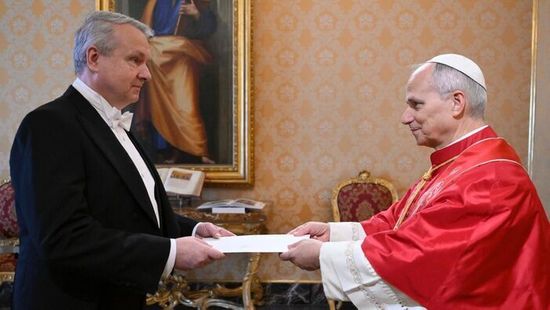
“With its Christian roots dating back over a millennium, Hungary has always maintained a special relationship with the Holy See, one we aim to continually develop and deepen,” Hungary’s new ambassador to the Holy See told Magyar Nemzet in a recent interview.
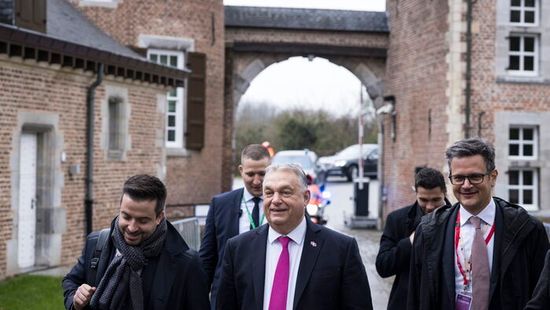
EU leaders discussed strengthening the single market and the future of EU's competitiveness.
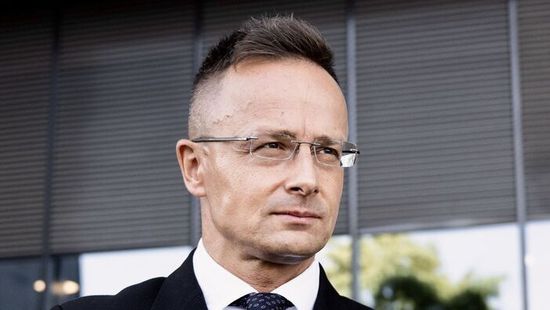
Hungary stands on the side of peace.
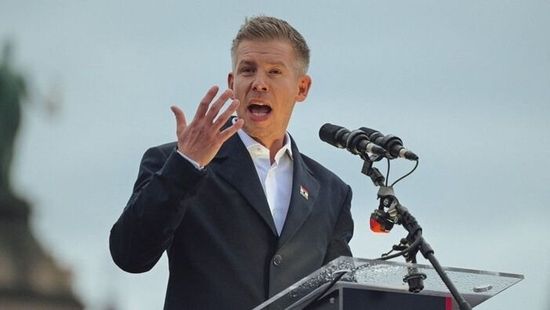
The drugs were simply placed on the table.


“With its Christian roots dating back over a millennium, Hungary has always maintained a special relationship with the Holy See, one we aim to continually develop and deepen,” Hungary’s new ambassador to the Holy See told Magyar Nemzet in a recent interview.

EU leaders discussed strengthening the single market and the future of EU's competitiveness.

Hungary stands on the side of peace.

The drugs were simply placed on the table.

Portfóliónk minőségi tartalmat jelent minden olvasó számára. Egyedülálló elérést, országos lefedettséget és változatos megjelenési lehetőséget biztosít. Folyamatosan keressük az új irányokat és fejlődési lehetőségeket. Ez jövőnk záloga.
Szóljon hozzá!
Jelenleg csak a hozzászólások egy kis részét látja. Hozzászóláshoz és a további kommentek megtekintéséhez lépjen be, vagy regisztráljon!